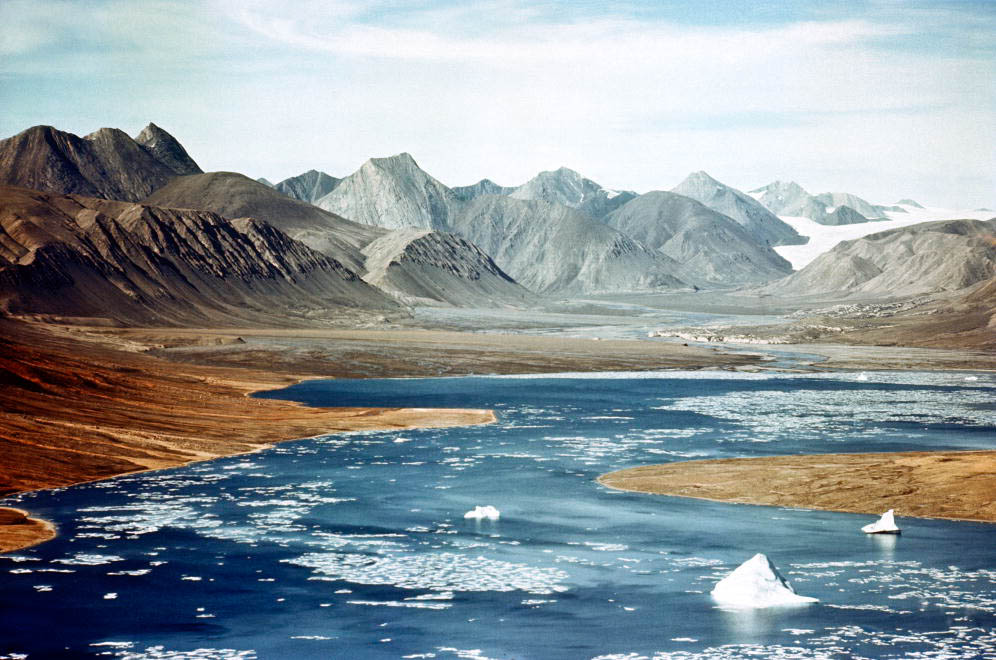COVID-19 is taking a toll on almost every aspect of the lives of Canadians. The global spread of the virus has brought illness, suffering and anxiety. As the number of confirmed cases continues to rise, it is understandable that the pandemic is at the forefront of everyone’s mind.
But even during — and perhaps especially because of — these troubled times, we must not forget about another crisis slowly enveloping the world: the climate crisis. In fact, lessons Canadians are learning now in the fight against COVID-19 can be applied to efforts to tackle climate change.
Both are global threats that require governments around the world to transform their mindset and reject “business as usual” in order to safeguard public health. The virus and the climate crisis also both demand that science inform decision-making. And for the public to play their part in addressing both threats, governments must present clear, credible, and transparent plans for action.
This is not to say that COVID-19 and climate change are one-and-the-same. When COVID-19 spreads quickly in our communities, the most vulnerable suffer the consequences within a short time. Climate change is slow-moving and comes from multiple, interlinked factors. But both have lethal implications for public health and economic stability.
And yet there’s a stark difference in the urgency political leaders have demonstrated in their response to both issues. It took just a few weeks for COVID-19 to stop the world in its tracks and governments to order radical changes to even the most mundane aspects of our society. In contrast, those same political leaders have known for years that emissions from industrial pollution and activity are a key driver of climate change, but they have done very little to mandate emissions reductions.
Swiftly implementing measures to slow the spread of the virus and protect the most vulnerable has been essential in the fight against COVID-19. Countries that took immediate action are now in the best position to deal with the devastating effects of the illness while those slow to respond are now suffering the consequences.
In Canada, we’ve seen governments at all levels — sometimes imperfectly, but still, admirably – step up to lead their communities through the COVID-19 pandemic. They’ve made tough decisions to close borders and put our economy on pause. Through it all, they’ve communicated consistently with the public on how we can prepare and adapt.
As a result, we are all familiar with the curve and the part we each must play to flatten it. By now, we all know the government’s science-backed advice – stay home, avoid all non-essential travel and trips outside your home, and keep at least two metres away from those outside your household. Since early March, governments and health officials have communicated and enforced these measures, all of which have given us the chance to save more lives.
Hopefully, our leaders learn from this experience and apply the same principles of speed and science when it comes to countering the climate crisis. To date, Canadian politicians have simply not done enough to protect Canadians from climate change.
Canada has missed every greenhouse gas reduction target it has set. We are warming twice as fast as the global rate. Last year, 11,000 scientists from around the world published a letter making a stark assessment – climate change is threatening the very fate of humanity. Meanwhile, the UN Intergovernmental Panel on Climate Change (IPCC) made a stark warning: We have just a decade to keep global warming under two degrees or else we face a climate catastrophe.
Canada must do its part in this global fight. As soon as the House of Commons returns to regular activity, our elected officials must heed these warnings and take urgent, unified action on this looming crisis.
And when it comes to handling this crisis, politicians cannot claim to have been caught off guard. Scientists, industry, and governments have known that human activity causes climate change since at least the late 1980s. And yet successive Canadian governments have failed to adequately reduce our greenhouse gas emissions.
Tackling the climate crisis will require the federal government to have a concrete plan to achieve net-zero emissions and a roadmap of how to get there. The culture of openness and transparency we’ve seen governments embrace during the pandemic must also continue. We have the right to know what our government is doing to keep us safe. These are all critical elements of the climate accountability law that the Ecojustice team and our partners have been advocating for in our conversations with the federal government over the last year. Ecojustice, in conjunction with other environmental groups, has proposed a legal framework that would require the current and future governments to abide by targets set in law – allowing them to turn the tide on climate change.
COVID-19 is the number one priority for all public agencies at this present time. Defeating this virus is our collective responsibility and requires collective effort, and understandably, the federal government is pouring all of its resources into winning this battle.
But this crisis will pass, and our post-coronavirus future — our climate future — will be completely of our choosing.
Our federal leaders can, and must, put in place a science-backed climate framework to change our emissions trajectory. Decision-makers must rely on scientists and experts to help guide them through the next few years to curb our emissions. Through it all accountability and open communication will be crucial to the credibility and success of these efforts.
Work on this front must continue. We cannot afford to wait — lives and our collective prosperity are on the line.







